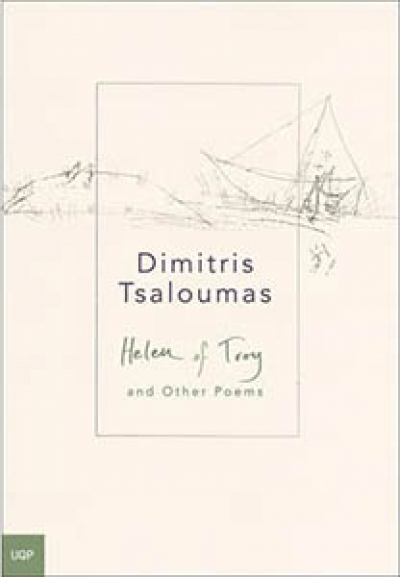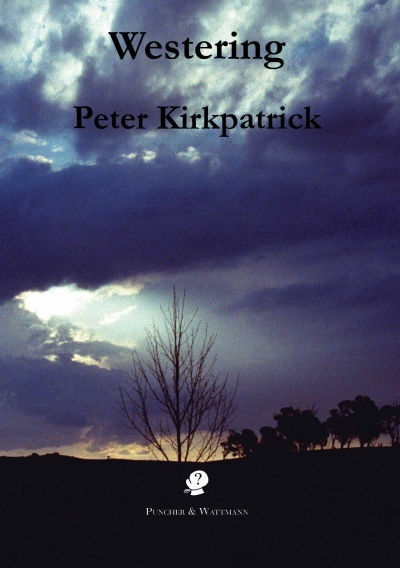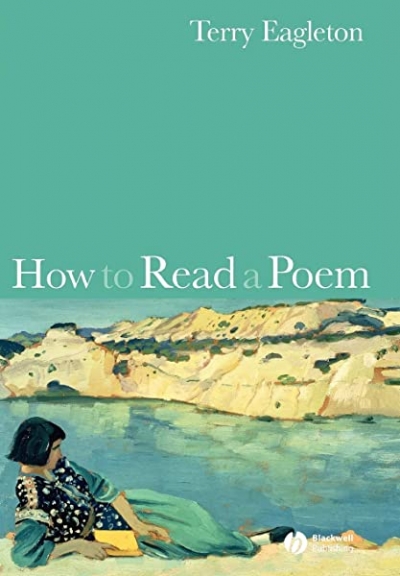Poetry
Dimitris Tsaloumas is often thought of as a poet writing between two languages. In his English poetry, this emerges in the way that the everyday diction of Greek often functions as the learned register of English. ‘Nostalgia’, as a compound word, is a modern Western coining, but when Tsaloumas opens the volume with ‘Nostalgia: A Diptych’, he evokes the Greek components of the word, particularly nostos with its connotation of Homeric return.
... (read more)Flashing Eyes and Floating Hair: A reading of Gwen Harwood’s pseudonymous poetry by Cassandra L. Atherton
Literary criticism is a rara avis in Australia’s publishing world, perhaps only to be hoped for under an imprint such as Australian Scholarly Publishing. Yet a search of its recent publications shows that among nineteen titles this is the only instance – and one facilitated by a Melbourne University publishing grant. Rightly so, for Cassandra L. Atherton’s is academic writing in the best sense of that abused adjective: argumentative, lucid, grounded in extensive research, sustained by a lively intelligence and harnessed to a bright idea. None of which means that I agree with everything she says, but then one function of good theoretical discourse is to provoke disagreement.
... (read more)The title poem of Michael Sharkey’s The Sweeping Plain – his first book of poetry since the retrospective History: Selected Poems 1978–2000 (2002) – is a polemic against politically conservative suburbia. The poem portrays a desert-like ‘sweeping plain’ of insularity, never-ending and utterly homogenous: ‘They look at others like themselves / in their home entertainment centres, / knowing answers to such questions as the names / of others living in that world.’ It is a pacey and rhythmic poem, with some surprising turns of imagery. The tone is measured rather than overly rhetorical, but it’s certainly not a new idea.
... (read more)Ecopoetics is tricky terrain which, in these poems of ‘forest and water’, Louise Crisp encounters sometimes with agility, sometimes faltering. Perhaps that’s intended.
The cumulative effect of this collection is one of an overland trek, gradually ascending from ‘poisonous lowlands’ to the harsher, restorative air of ‘uplands’.
... (read more)‘Westering’ is a resonant archaism which makes a wittily ironic title for Peter Kirkpatrick’s new volume. This is work which has a decidedly début du siècle flavour in its hard-edged urban perspective on ‘out west’. The dialectic of city/bush, with its history from Henry Lawson and Banjo Paterson to Les Murray, is voiced in several registers through these finely crafted and sharply literate poems.
... (read more)These are the final lines of a poem entitled ‘Endings 111’ in Tom Shapcott’s recently published collection of poetry, The City of Empty Rooms. The poem is included in the final two sections of the book devoted to memories of a Queensland childhood, more particularly recollections of growing up in the inland town of Ipswich. As David Malouf suggests in the blurb, ‘this is a late book that sometimes sharply, sometimes forgivingly looks back, but always with the freshness of things felt and seen anew in a living present’.
... (read more)The English critic Terry Eagleton is nothing if not a dasher. Once suspected by many as the kind of postmodern theorist who undermined the category of ‘literature’, he has increasingly hiked into its territory. In The Illusions of Postmodernism (1996), he turned against the kinds of scepticism and virtuality which he saw as demeaning all literary or cultural study. The book certainly made some of his former allies quite cross, not least because it was penned with such rhetorical high spirits. His Marxist foundations, sturdily nourished in a Salford boyhood, remained, however, and were built upon. Yet they are sometimes twinned with residues of Catholic belief, as his recent attack on the atheism of Richard Dawkins has shown, full as it is of residual theology. He can certainly be an odd kettle of fish. In How to Read a Poem, Eagleton takes a broad brush. He remains at home with the traditional texts, the kinds of poems we have long deemed important.
... (read more)Julian Croft, born in 1941, is a poet whose work deserves a wider audience. This new work, Ocean Island, is by far the best of his books and it promises – in the new modes it works out – a rich harvest of poems in the future. Born during the war, and having spent most of his life in an academic position (‘I’ve marked too many essays, / castrated too many days’), Croft is one of those who has taken the long, slow road to poetic maturation.
... (read more)Katherine Gallagher’s is a poetry of small spaces and objects, tiny hollows of memory that momentarily glow, incandescent, in the imagination: ‘knotted roots / reaching down into the riverbed’, ‘faces mottled in eucalyptus shade’, that place ‘beside the pond, in foaming clusters / creamy flowers of meadowsweet; / and there’s goatsbeard (‘jack-go-to-bed-at-noon’) / bird’s-foot trefoil, majoram and reeds.’ These latter lines are from the poem ‘Summer Odyssey (Railway Fields, for D.B.)’, an occasional poem for a small piece of land ‘Between Green Lane and the New River’s / four hundred-year-old waterway’. The poet spins from the ordinary and the overlooked a world of intricacy and quiet sensual power.=
... (read more)The Escape Sonnets by Brian Edwards & Couchgrass by Dominique Hecq
Dominique Hecq and Brian Edwards are well versed in the contingencies of language, roaming in their poetry between experimentation and high tradition – at least in terms of content, if not so much in form. Both target the self-reflexive play of language early in their latest collections: Hecq in her title poem, with ‘words spreading / like couchgrass after summer rains / on my tongue’; Edwards even more demonstrably in ‘Reading Althusser on Marx’, where ‘Standing between objects and meanings / the language: there are only partial truths’.
... (read more)









